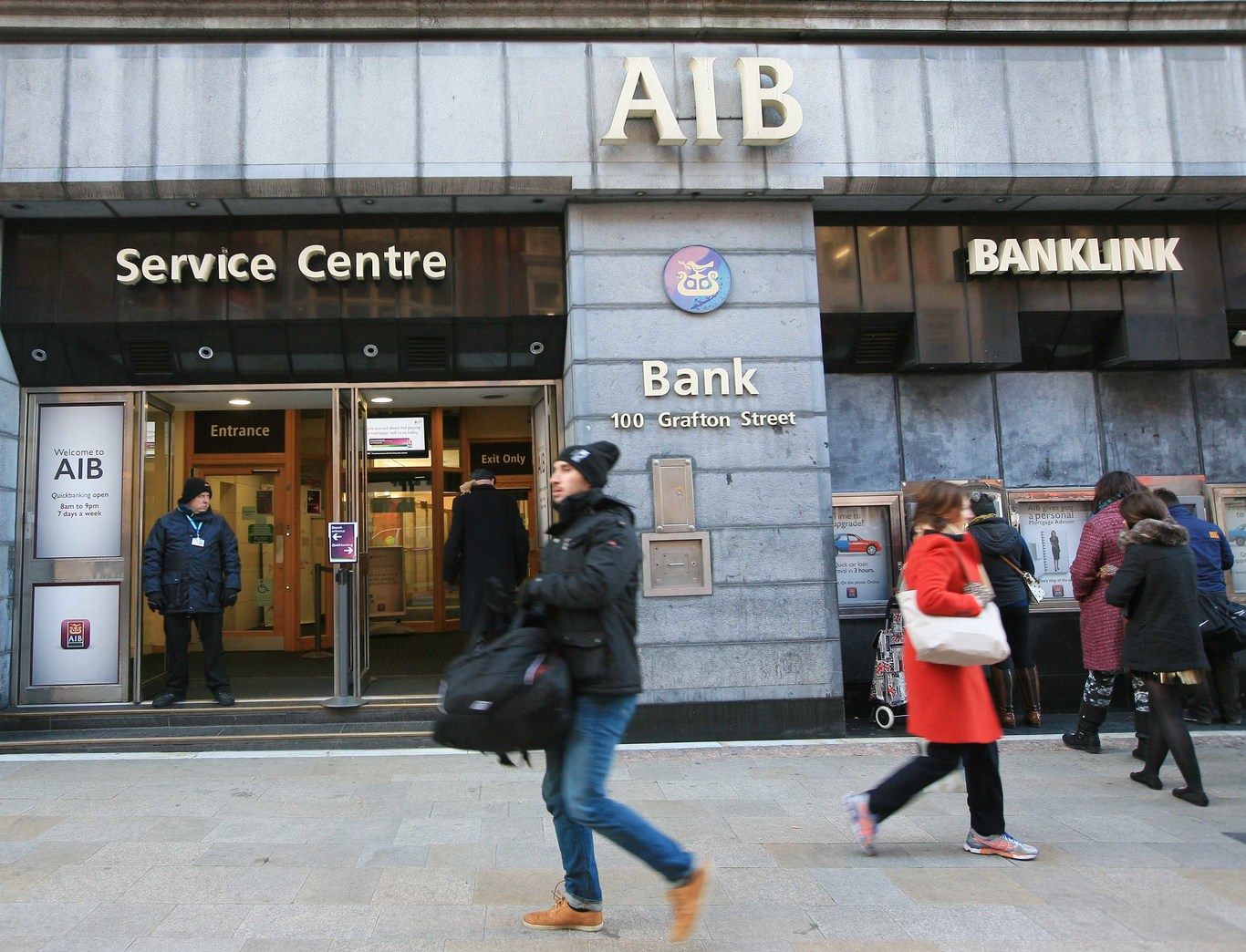AIB has been handed a €2.2m fine for breaching anti-money laundering laws
A Central Bank investigation found that the bank was slow to report hundreds of suspicious transactions.
AIB HAS BEEN slapped with a €2.2 million fine by the Central Bank of Ireland for failing to report hundreds of suspicious transactions within an acceptable time.
The financial regulator identified six breaches of the 2010 Criminal Justice (Money Laundering & Terrorist Financing) Act at the bank over a three-year period.
The Central Bank first raised the issue of non-compliance four years ago after it conducted a review of whether AIB was adhering to the standards of practice required under the legislation.
A subsequent investigation found that bank failed to follow the rules a number of times.
It was discovered that AIB had not put in place “adequate resources” to deal with reports of suspicious transactions from financial services firms.
Under the Criminal Justice Act, banks are required to have procedures in place to help identify dubious transactions and report them to An Garda Siochána and the Revenue Commissioners when necessary.
It was discovered that AIB failed to report 211 such transactions within a reasonable time frame.
The bank’s 2011 acquisition of the Educational Building Society was blamed for created a backlog of alerts that took months to clear.
It took more than a year and a half for AIB’s anti-money laundering unit to deal with the backlog, which at one point stood at over 4,200 alerts that had not been dealt with for more than 30 days.
“Reporting suspicious activity is time‐critical,” said Derville Rowland, director of enforcement at the Central Bank.
“In this case, it was particularly concerning that sufficient resources were not applied promptly to investigate a substantial backlog of alerts of potentially suspicious activity.”
 An AIB ATM machine
An AIB ATM machine
Due diligence
The Central Bank also found that the company had not carried out due diligence on customers who had opened accounts before May 1995, when the first anti-money laundering and terrorist financing laws in Ireland were put in place.
AIB was supposed to review any identifying documents it held for current customers who opened an account two decades ago. However, it provided services to more than 500,000 of these ‘pre-1995′ customers without completing adequate checks.
The Central Bank’s investigation also found that AIB had not properly monitored customers identified as ‘politically exposed persons’, or PEPs – a term used in financial regulation for senior political figures.
They are at higher risk of bribery and corruption, so extra checks have to be carried out when dealing with those customers.
The €2.2 million penalty was the latest handed down by the Central Bank in recent months for financial service providers now following the anti-money laundering rules.
In November of last year, Ulster Bank was fined more than €3.3 million for breaching the 2010 act over a six-year period. The following month, Bray Credit Union was hit with a €98,000 fine for failing to comply with the law.
More recently, Drimnagh Credit Union was told to pay €125,000 for breaching several laws, including those relating to money laundering and terrorist financing.
Sign up to our newsletter to receive a regular digest of Fora’s top articles delivered to your inbox.






